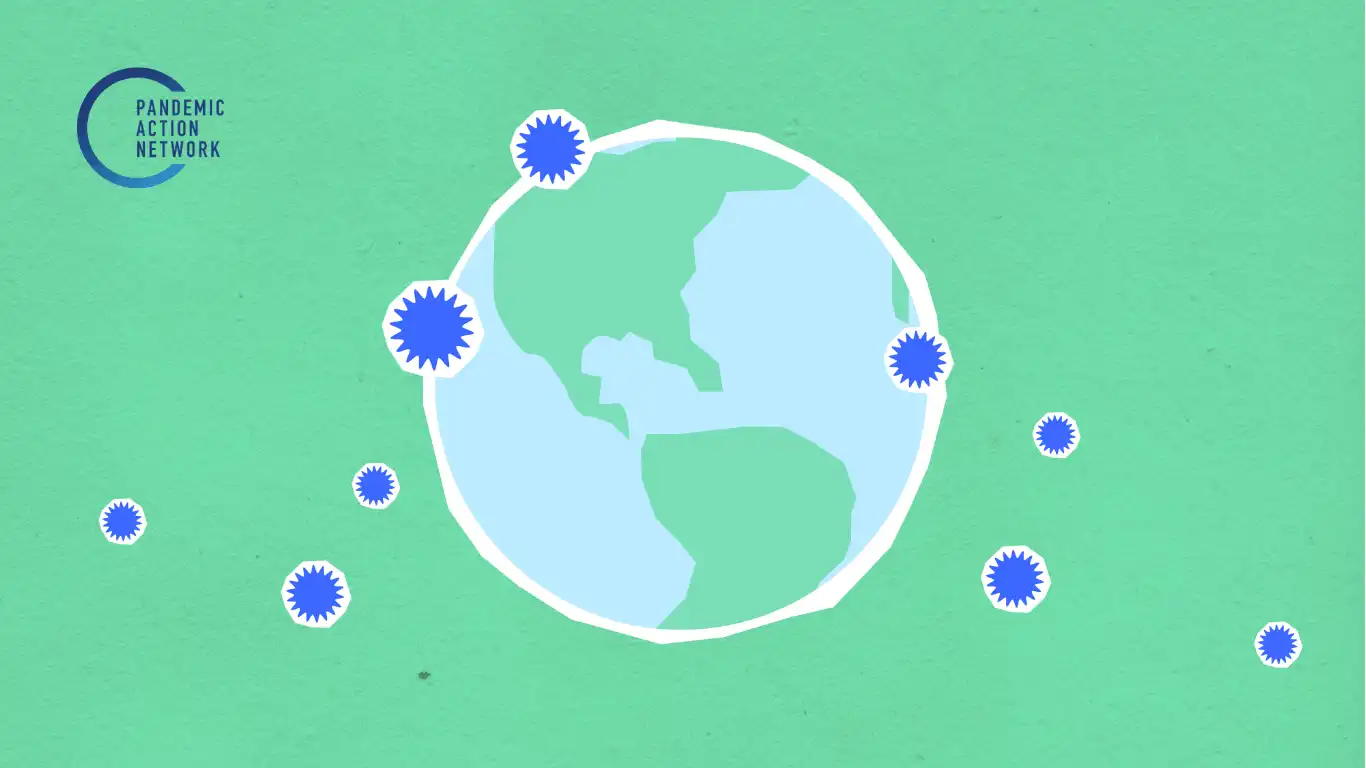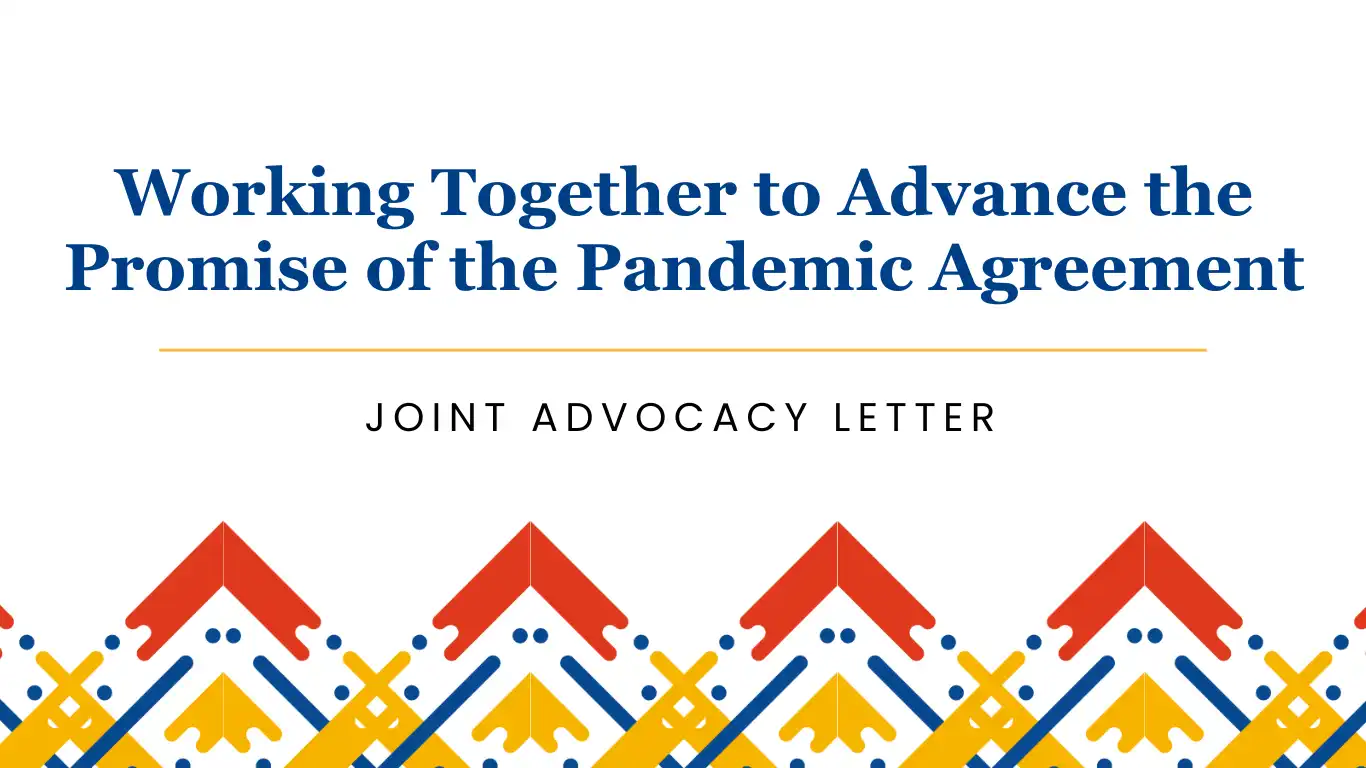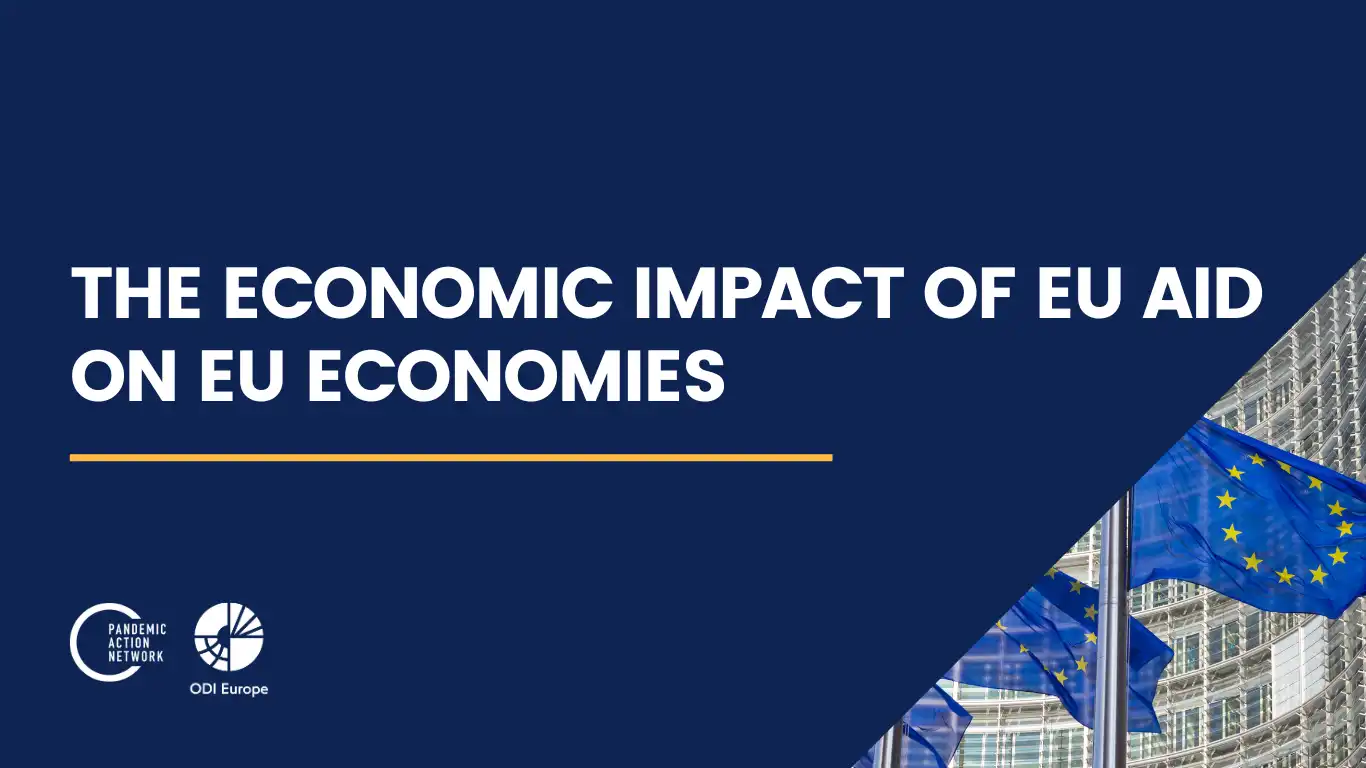The devastating health, economic, and social impacts of the COVID-19 global health crisis show that it is well past time for world leaders to prepare for pandemics as the existential, catastrophic, and growing global security threat they are. In 2010, well before COVID-19, there were six times more zoonotic spillover events than in 1980, and the number of new outbreaks continues to grow. Persistent gaps in international pandemic preparedness and response capacities have been flagged by various expert panels in the wake of previous health emergencies, but time and again, once the crisis disappears, political attention and funding shifts to other priorities. This dereliction of duty must stop once and for all.
Despite impacting people around the globe, COVID-19 has not affected everyone equally. The pandemic has exposed and exacerbated long-standing health and socio-economic inequalities within and across countries and in marginalized and vulnerable populations, including inequalities due to gender, race, ethnicity, class, and disability. The glaring disparities in global access to lifesaving COVID-19 vaccines, therapeutics, diagnostics, and vital tools such as oxygen and personal protective equipment (PPE) underscore the inequitable global health and preparedness system. And the lack of proactive attention by leaders to address and account for these inequities has significantly undermined the global COVID-19 response.
As the Global Preparedness Monitoring Board (GPMB) made clear in its September 2020 report A World in Disorder, the world cannot afford to continue to ignore or delay preparations to bolster our collective defenses against emerging pandemic threats. As they battle the current crisis, countries and international institutions must act now to ensure the world is better prepared for the next pandemic threat, which may be lurking just around the corner. These commitments should include building and reliably funding a well-trained and well-equipped health and research workforce, more resilient frontline health systems, timely and transparent disease surveillance, and effective supply chains for vaccines, diagnostics, PPE, and other tools to enable every country to detect, prevent, and rapidly respond to outbreaks before they become deadly and costly pandemics. It is time to invest in a smarter, more responsive, and more resilient global health security architecture.
Pandemic Action Network’s 100+ partners urge world leaders to take urgent action in the following areas to bolster the global COVID-19 response, hasten an end to this global crisis, and lay the groundwork for a more pandemic-proof world.
Support an equitable global response to COVID-19
The only way to end this pandemic is to end it for everyone through a coordinated global response. Yet as world leaders navigate the second year of responding to COVID-19 and securing vaccine doses for their constituents, nationalist inequitable approaches are still pervasive. Recent data shows that the world has now procured enough COVID-19 vaccine doses to reach herd immunity globally, but while some high-income countries have secured multiple times the number of doses as there are eligible adults in their countries, only 0.2% of doses administered have been in low- and middle-incomes countries (LMICs). Although it may seem intuitive for governments to first take action at home, this approach belies the fact that the virus — and its swiftly spreading variants — do not respect borders. Many countries that managed to control or even stop the spread of the virus earlier in the pandemic are once again seeing a surge in cases. There simply is no effective domestic response without also embracing a global approach. Everyone deserves to hope for a swift end to the pandemic, regardless of where they live. But it will only be possible if political leaders act globally as well as locally, knowing no country will be safe until every country is safe.
1. Accelerate global access and delivery of COVID-19 vaccines needed to achieve at least 70% coverage in all countries and enable an equitable global response and recovery.
World leaders should:
- Fully fund the Access to COVID-19 Tools Accelerator (ACT-A) in 2021, filling the $22.1 billion funding gap as soon as possible with countries paying their fair share for this global public good. Countries should also commit to continue to invest in research and development (R&D) as well as scale-up of proven tools to prevent, test, and treat COVID-19 and ensure that medical countermeasures are effective against all strain mutations and all variants of concern. Given the scale of resources required, countries will need to tap into fiscal stimulus funding and other financial sources beyond official development assistance (ODA).
- Agree to a roadmap to achieve at least 70% coverage of vaccines for LMICs, with at least 30% being secured, delivered, and administered in 2021. Leaders need to agree to a fully costed plan to achieve equitable global coverage as soon as possible. The full costs of delivering and administering doses in-country should be included in this roadmap, as well as the investments in vaccine education required to increase vaccine confidence.
- Commit to donate, free of charge, all excess COVID-19 vaccine doses to the COVAX facility in parallel to their domestic vaccination efforts and start those donations as soon as possible. Countries should immediately announce commitments to share their full surplus supply on the most ambitious timeline possible, putting plans in place to deliver on this commitment as soon as is feasible in 2021 in line with COVAX’s dose sharing principles. These donations should not count as ODA, and should be in addition to funding the ACT-A.
- Commit to “slot swaps” as another way to give COVAX additional supply. “Slot swaps” should be undertaken whereby high-income countries reallocate some of their existing orders immediately, potentially ordering replacement vaccines to arrive farther in the future, effectively giving their earlier “slots” to COVAX to help provide vaccines for LMICs to close the current acute gap in supply.
- Ramp up global access and delivery of rapid testing, medical oxygen, and personal protective equipment to the frontlines. Continuing shortages of PPE and medical oxygen for frontline health workers and extremely limited deployment of testing — including genetic sequencing capacity to detect variants of interest — especially in LMICs, is hampering the global COVID-19 response and is a rate limiting factor for global rollout of COVID-19 vaccines and restoration of essential health services.
Prioritize and invest in pandemic preparedness and prevention
According to the IMF, the pandemic will cost the global economy and the World Bank projects that more than 160 million people will fall into poverty by the end of 2021. Conversely, recent estimates are that as little as $10-20 billion annually can ensure the world is much better prepared to detect, prevent, and respond to the next infectious disease outbreak before it becomes another deadly and costly pandemic. To minimize human lives lost from infectious diseases and lessen the impact on countries due to economic fallout, leaders should take the actions below to be prepared for the next pandemic.
2. Establish a catalytic, sustainable multilateral financing mechanism that is dedicated to promoting pandemic preparedness and prevention.
World leaders should:
- Pledge new investments toward a target $20 billion initial capitalization co-funded from public, private, and philanthropic sources. Priorities for this new multilateral financing mechanism — which will fill a strategic gap in the existing global health architecture — should be on supporting LMICs to develop and implement national action plans for health security and pandemic preparedness, to close their urgent health security gaps, and foster a global “race to the top” among all nations for preparedness. The catalytic nature of this mechanism will help ensure both countries and other global health initiatives prioritize coordinated, multisectoral, prevention and preparedness funding in their domestic budgets, including support for country-level programmatic and managerial capacity in health systems strengthening.
- Align funding with target country priorities to strengthen pandemic preparedness and containment as well as promote efforts toward pandemic prevention. Programs that should be financed at scale include detecting and stopping the spread of outbreaks and ensuring compliance with the International Health Regulations (IHRs), strengthening laboratory and manufacturing capacity, bolstering and protecting a trained, compensated health workforce, building and strengthening health information systems, ensuring resilient national and regional supply chains, One Health initiatives, and stopping zoonotic spillover from causing new outbreaks through measures such as reductions in deforestation and wildlife trade.
3. Bolster financing and at-the-ready global R&D capacity and coordination to combat emerging infectious diseases and pandemic threats without undermining important funding for existing epidemics research and innovation, including poverty-related and neglected diseases.
Applying the lessons learned from COVID-19, leaders should support the development and financing of mechanisms and initiatives that coordinate and catalyze research and development for new tools, including the Coalition for Epidemic Preparedness Innovations (CEPI), Global Antibiotic Research and Development Partnership, and other not-for-profit product development partnerships (PDPs) addressing the broad range of health threats.
World leaders should:
- Fully fund CEPI’s $3.5 billion replenishment. This funding would support the organization’s moonshot initiative of compressing vaccine development for new pandemics to 100 days, and continuing efforts to develop vaccines for known threats. It would also support CEPI’s other objectives, including preparing clinical trial networks to quickly respond to new threats, coordinating with global regulators to streamline vaccine oversight, and linking manufacturing facilities to speed up global production.
- Support integration of R&D into the Global Health Security Agenda (GHSA) framework to include R&D capacity-building for medical countermeasures. Inclusion of metrics through a GHSA R&D taskforce will help countries assess, prioritize, and better plan for strengthening their R&D capabilities.
- Build on the ACT-A’s response to COVID-19 to ensure a robust, end-to-end, and sustainable investment in global health R&D for pandemic preparedness, including long-term investments to strengthen global research, laboratory, and manufacturing capacities. This future readiness state should also foster more investments and partnerships with diverse research and academic institutions to both build regional R&D prior to crises and scale up support during emergencies. Investments should be made with policies that promote equitable global access to and affordability of tools like vaccines, diagnostics, and therapeutics.
4. Strengthen global and national surveillance capacities & outbreak analytics.
COVID-19 has demonstrated global gaps in early detection and data sharing around emerging threats, as well as gaps in ongoing surveillance capacities of countries, especially low-resource countries. Current emerging infectious disease surveillance and investigation is poorly allocated, with the majority of the globe’s resources not focused on areas with the most zoonotic hotspots where the next emerging deadly pathogen is likely to originate.
World leaders should:
- Strengthen integrated national disease surveillance capacities in LMICs. Such surveillance capacities should take a One Health approach and be responsive to local needs (i.e., give results in real-time for use by clinicians and public health officials). Such capacities should not be developed in a silo for pandemic risk monitoring; rather they should provide utility for day-to-day public health programs, leverage the latest developments in digital tools to streamline operations for health workers, and accelerate data flow and analysis.
- Strengthen mechanisms and platforms that allow for independent sharing and verification of data related to emerging health threats, complementary to and in partnership with the WHO’s role in collecting data from official sources under the IHRs. Such capacities should enable and promote more transparency and accountability in data access for all relevant stakeholders.
- Commit to the rapid publishing and sharing of line list and pathogen genome data into shared repositories (e.g., the Global Influenza Surveillance and Response System and the International Nucleotide Sequence Database Collaboration) to ensure that data necessary to monitor variants of concern can be acted upon before they become dominant.
- Support innovations in outbreak detection and analytics capacity nationally through emergency operations centers, regionally through academic centers of excellence, and globally through laboratory and disease surveillance networks. The ACT-A has taught the community about the importance of collaboration and rapid response, and these lessons should be applied to future tools.
5. Bolster global capacities, institutions, and systems for pandemics, health security and resilient health systems, including through reforming WHO and strengthening international frameworks for pandemic preparedness and response.
World leaders should:
- Build consensus for, and rapidly move to implement, proposals that will strengthen the WHO as the global coordinating authority on health. Leaders should support proposals for sustainable financing of the WHO, including incremental increases in assessed contributions and more (and more flexible) voluntary financing. Such resourcing should go hand-in-hand with strengthening the WHO’s normative and technical capacities, including the Chief Scientist’s Office, the Health Emergencies Programme, and the WHO Academy, and with encouraging greater staff mobility and budget flexibility to bolster the WHO’s capacities at the country-level. In line with the Framework for Engagement with Non-State Actors (FENSA), leaders must enable more robust and transparent engagement with key stakeholders such as civil society and the private sector.
- Strengthen the IHRs to foster more timely and accountable response to pandemic threats, including to authorize international investigations. Leaders should afford the WHO the ability to independently investigate potential and emerging threats, specify better information sharing, and better calibrate the definitions of a Public Health Emergency of International Concern (PHEIC). Metrics on equity, R&D, infection prevention control, capacity strengthening, and water, sanitation and hygiene should also be included in the IHR Monitoring and Evaluation Framework, to incentivize countries to assess, plan, prioritize, and better support sustainable and resilient health systems, and promote healthcare worker safety.
- Support other voluntary and compulsory instruments to strengthen accountability of nation states and foster multilateral cooperation for pandemic preparedness and response. Many gains can be made by strengthening existing mechanisms and instruments, which should be prioritized alongside the proposal for a new pandemic treaty. Such instruments should promote accountability in functions including ensuring novel countermeasures are treated as global public goods; motivating faster flow of financing to address direct and collateral impacts of pandemics, including protecting frontline health workers and social protection for vulnerable populations such as refugees and those living in conflict-affected areas; reaffirming the centrality of human rights considerations in the context of a pandemic; boosting domestic R&D and manufacturing capacity; and establishing up data surveillance systems, and norms and standards around data sharing and data privacy.
- Scale up national and global vaccine education efforts to increase vaccine confidence, distribution, and uptake. Countries should have budgets dedicated for vaccine education within health ministries, initiate public education campaigns to manage the spread of misinformation online, and build capacity for vaccine hesitancy research. Training should be prioritized for frontline healthcare workers, community leaders, and others in how to engage in difficult conversations on vaccine hesitancy.
6. Promote equity-focused initiatives and human rights protections in all aspects of pandemic preparedness, response, and recovery, including specific attention to address the intersectional and gendered effects of outbreaks.
World leaders should:
- Commit to equitable financing to support populations most at risk for morbidity and mortality, including addressing inequities due to disparities in gender, race/ethnicity, sexual orientation, socioeconomic status, and disability.
- Ensure commitments to human rights and equity are met, in alignment with IHR Article 3 on human rights, the United Nations Security Council Resolution 1325 for Women, Peace and Security, the UN Political Declaration for Universal Health Coverage, and the UN Sustainable Development Goals.
- Commit to equal and diverse representation on emergency committees, including the IHR Emergency Committee and UN technical working groups, with active and meaningful participation of gender advisors and civil society groups as non-participant observers of EC meetings.
- Ensure that all data pertinent to pandemic preparedness and response collected by the WHO and other health-focused UN bodies (as well as national governments) is published and disaggregated by sex and key socioeconomic groups.
An array of upcoming international summits — including the G20, G7, World Health Assembly, World Bank/IMF Meetings, and UN General Assembly — offer opportunities for leaders to act on this agenda. Critically, while health ministers have a key role to play, a concerted effort to end pandemics is a whole of government effort — and must be addressed at the level of heads of state. That is why the Pandemic Action Network supports the GPMB’s call for the UN Secretary-General to convene a focused UN High-Level Summit on Pandemic Preparedness and Response to mobilize increased domestic and international financing and advance efforts toward a new international framework for pandemic preparedness. Such a summit at head of state level should take up the forthcoming findings of the Independent Panel for Pandemic Preparedness and Response (the Independent Panel), the G20 High-Level Independent Panel for Financing the Global Commons (HLIP), the International Health Regulations (IHR) Review Committee, and the proposal for a new international treaty on pandemic preparedness and response.
World leaders must seize this opportunity to commit to action and leave a legacy of a healthier and safer world. We can pandemic-proof the future if world leaders act now. The world can’t afford to wait.



